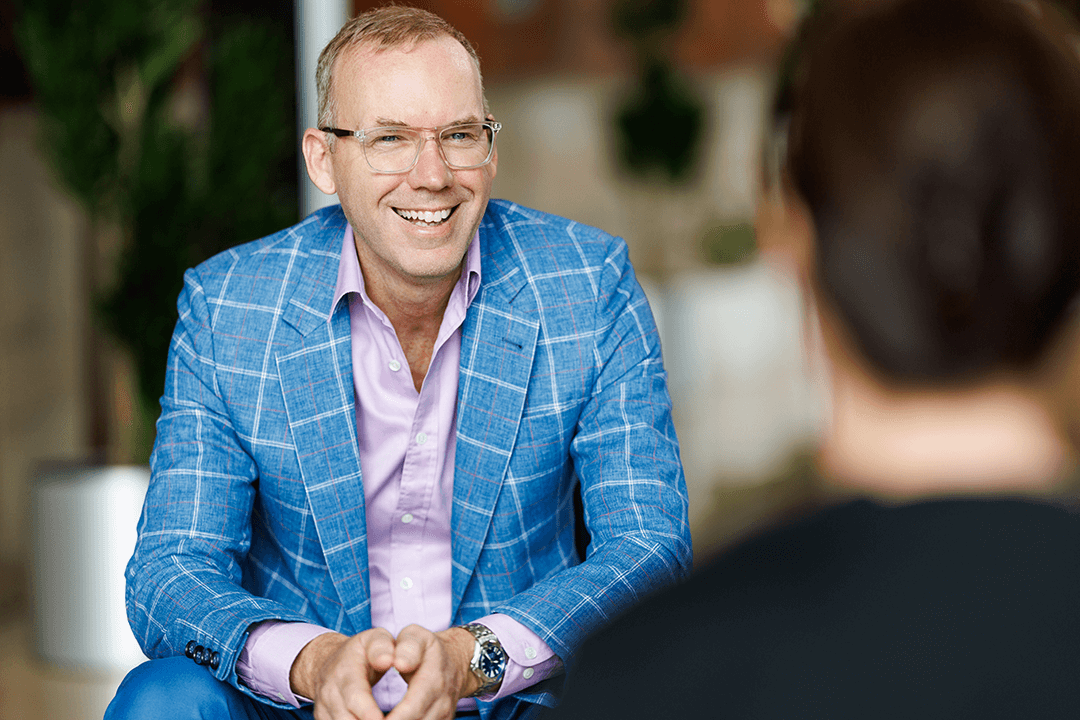New BESE dean Professor Matthew McCabe focuses on turning science into real-world impact

Professor Matthew McCabe first visited King Abdullah University of Science and Technology (KAUST) out of curiosity, encouraged by colleagues at the University of New South Wales, Australia, who delivered some of the early training courses at the newly formed Water Desalination and Reuse Center. What he found was a revelation: a hub of research excellence that quickly convinced him to consider a move to Saudi Arabia.
“From my first visit to KAUST, I was immediately struck by its vision and ambition,” McCabe said. “What was being built here was unlike anything I had seen before, and I knew it was something I wanted to be part of.”
In late 2012, McCabe joined KAUST. Today, he is a recognized leader in Earth observation and water security.
The former KAUST Climate and Livability Initiative director’s research encompasses the modeling and observation of the Earth system, with a focus on terrestrial processes and their linked interactions, particularly as they relate to the water-food nexus, climate change, ecosystems, and the environment. His work provides insights essential to creating scalable solutions to global environmental challenges.
McCabe is also KAUST’s new dean of the Biological and Environmental Science and Engineering (BESE) Division, which advances solutions in health and biomedicine, food and water security, climate and ecosystem resilience, and sustainability — areas critical to the future of the planet and its inhabitants.
As he begins his work leading the division, McCabe aims to deepen stakeholder collaborations, strengthen exchange across KAUST disciplines, and accelerate the application of research in the real world. He prioritizes attracting, training, and enabling young talent who will lead the Kingdom in science and research.
“We can only tackle the challenges ahead by empowering the best minds to lead in science and discovery.”
Opportunities ahead
Located in a hot, arid region that serves as a natural living laboratory, BESE and KAUST are uniquely positioned to tackle some of the world’s most pressing challenges. From advancing food, water, and energy security to driving innovations in health, biotechnology, and ecosystem resilience, McCabe noted that Saudi Arabia’s conditions provide a window into global futures. Research done locally can generate solutions with far-reaching relevance.
“Saudi Arabia has some unique pressures, from dryland ecosystems to food and water security, making sustainability and climate change important priorities,” he said. “Looking ahead, the challenge is not only to secure food, water, and health for future generations, but to build a world where both people and the planet can truly thrive.”
BESE’s contributions span diverse fields, from improving desalination technologies and enhancing coral reef resilience to breakthroughs in genomics and health innovation, he noted. This breadth means the division’s science addresses urgent needs while also advancing long-term sustainability and resilience. “I aim to ensure BESE’s continued growth as a leading division within KAUST and as a trusted scientific voice nationally and globally.”
KAUST’s mission is to drive discovery and deliver accelerated impact aligned with Saudi Vision 2030 goals and the priorities of the Research, Development, and Innovation Authority (RDIA). As it enters a dynamic phase of growth, notably in biomedical research, McCabe said BESE is ready to combine scientific strengths and lead in delivering scalable, sustainable solutions.
“Our aim is simple but ambitious: to harness science and engineering that not only advances knowledge, but shapes a thriving future for people and the planet.”
Leadership approach
For McCabe, leadership is about more than service. It is about enabling transformation. His approach combines adaptability with a strong sense of purpose: listening and responding to the needs of KAUST’s president, senior leadership, faculty, students, and staff, while also setting a clear vision for where BESE can go.
“As dean, BESE’s purpose is clear: to advance knowledge, drive discovery and innovation, and deliver impact where it matters most.”
Inclusive and purpose-driven, McCabe said his strategy as dean is about cultivating an environment where ideas can be shared, collaboration is valued, and people feel supported, ultimately producing research that benefits society and future generations. “I want BESE to be a place where talent is nurtured, bold ideas are supported, and discoveries translate into lasting benefit for Saudi Arabia and the world.”
Acknowledging Young
McCabe acknowledged the contributions of BESE’s outgoing dean, Professor Iain Young, whose leadership over the past three years laid an “incredible foundation,” particularly in advancing the One Health strategy, which unites environmental science and biomedical research to safeguard human and planetary health.
McCabe said Young also promoted interdisciplinary collaboration while setting up the division for future success. The new dean is ready to build on this legacy.
“Dean Young has been an outstanding advocate for faculty and a champion of the student experience, ensuring that KAUST remains focused on what matters most: training the next generation of scientists and engineers. He has set a strong foundation for BESE, and I look forward to building on his work as we advance KAUST’s strategic goals.”

